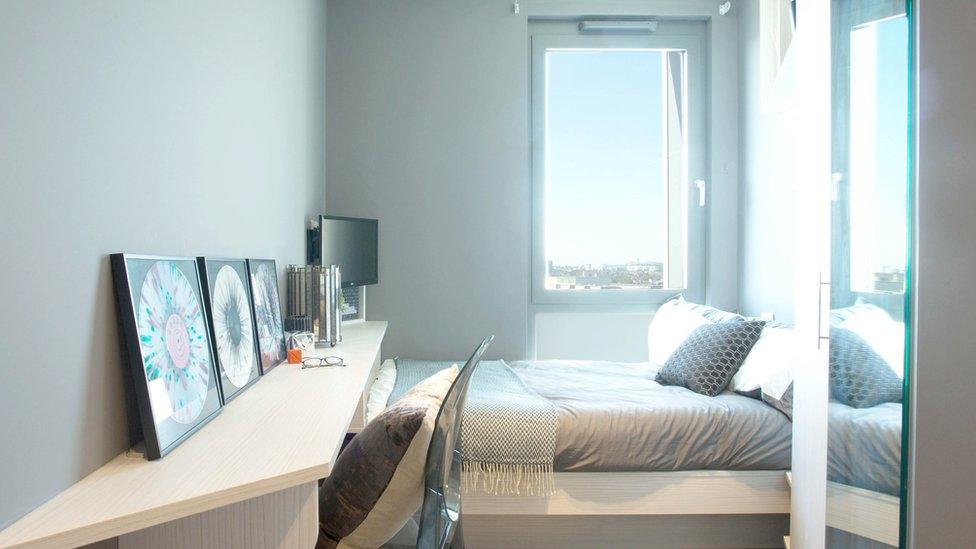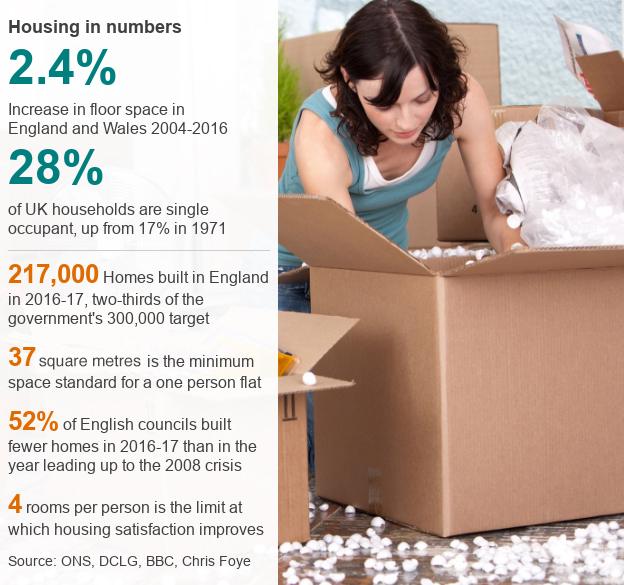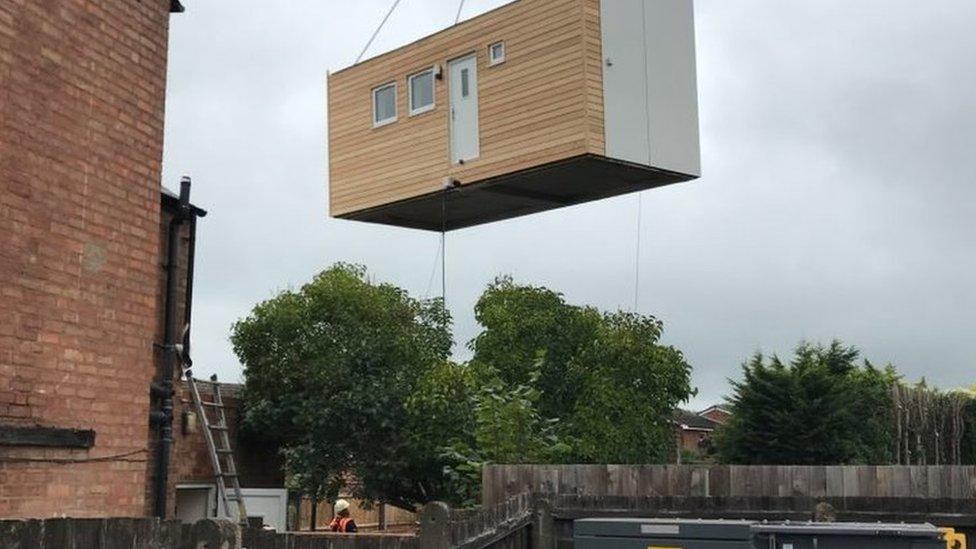'Micro-homes could solve' London's housing crisis
- Published

More Londoners are comfortable with living in smaller apartments, a report claims
Living in micro-homes could "expand choice" for young professionals and help tackle London's housing crisis, a report has suggested.
A neoliberal think tank is calling for the Greater London Authority (GLA) to scrap its rules on minimum floor space.
The Adam Smith Institute said homes in the capital with less than 37 sq m of floor space could be an "affordable opportunity" for young people.
But the GLA said "cramming people in" was not the answer to the problem.
Micro-homes are defined by the British Property Federation, external as living spaces between 20 and 40 sq m, that are either self-contained or share some amenities.
The average size of a home in England and Wales is 90 sq m, external.
But the Adam Smith Institute claimed "size doesn't matter, it's how you use it", and said the GLA's minimum floor space requirement, external should be replaced with a minimum standard of living.
It also claimed more Londoners were "comfortable with living in smaller apartments".
Micro-homes were "smart, modern, custom-designed units" which were "often accompanied by communal amenities such as games rooms and open living spaces", the institute said.

In the study, external, author Vera Kichanova admitted micro-homes were "not for everyone" and "should not be a substitute for profound reform of housing regulation".
But she added: "For many younger individuals smaller homes would provide the opportunity to live centrally: close to work, entertainment and other amenities.
"Local authorities must reverse their opposition to smaller units in order to provide Londoners with more housing choice at affordable levels."
'Unhealthy'
But Daisy Dunne, 24, who lives in a two-bedroom house in Stockwell with her boyfriend and another couple, said: "I don't think I could live in a micro-home because I'd find the lack of space too oppressive.
"I'd much rather get around London's high rent prices by living with friends, or with my boyfriend and another couple, like I'm doing now."

Ms Seaborne (right) and her partner moved out of a shared house as they wanted more space
Lily Seaborne, 25, agrees. She lives in a one-bedroom flat in Hackney with her partner.
The couple were previously renting a living room of a property which they shared with friends.
"We moved [out of the living room], in order to have more personal space and also to live just us two," said Ms Seaborne.
"We are paying nearly double what we were paying before in rent, but I'd say it's the average for many people.
"I've stayed somewhere minuscule before on holiday, and although it's fine for a short while, I wouldn't recommend it for anyone. I think it's unhealthy to live on top of oneself like that, as a couple, it could drive you apart."
London mayor Sadiq Khan has said London needs "more than 50,000 new homes a year" to combat a shortage of affordable housing.
However, he does not want people to lose out on space.
James Murray, the deputy mayor for housing, said: "The solution to London's housing crisis is not to cram people into ever-smaller homes.
"We need to build more council, social-rented, and other genuinely affordable homes that are well-designed places to live.
"The mayor supports homes being built at higher densities, but this must not mean cutting back on space for individual homes."
- Published24 April 2018

- Published10 December 2018

- Published8 March 2018
